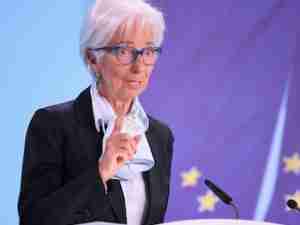Turmoil in
Ukraine and a series of Western sanctions on
Russia are starting to hurt some U.S. corporations doing
business in the region, with the latest round of U.S. penalties threatening to complicate matters further.
The companies have expressed concern about the weak Russian
economy, the rouble's decline and the potential for the crisis to worsen. There are also worries about a possible backlash in
Russia against Western products.
U.S. Treasury Secretary Jack Lew said that international sanctions on Russia were putting pressure on Russia's
economy, and more actions could be taken if Moscow did not step back from the
Ukraine crisis.
Companies began feeling the pain in the first quarter, "but it seems to be worse and more uncertain and spreading in the second quarter, which will obviously impact future
earnings reports," said Clement Miller, investment strategist at Wilmington Trust Investment Advisors.
McDonald's Corp, which imports about half of its food used in its Russian
restaurants, said the weaker rouble hurt restaurant margins in Russia by 2 percentage points, dragging down the company's overall margins in Europe.
"So if you assume the rouble is going to stay at this depressed level the rest of the year, that is something we are going to be battling with for the rest of the year in our European margins," McDonald's Chief Financial Officer Pete Bensen said on the company's first-quarter conference call.
McDonald's, which operates more than 400 restaurants in Russia, was the first international fast-food chain to tap the Russian market when it opened in Moscow's Pushkin Square before the collapse of the Soviet Union. McDonald's sees Russia as one of its top seven major markets outside the United States and Canada, according to its 2013 annual report.
Ford also pointed to pressure on margins "because even though we are working hard to localize more and more parts we still have a substantial portion of the vehicles that we produce there that have imported components," Chief Financial Officer Bob Shanks said in an interview.
Shanks, who also cited lower sales volume in Russia due to the country's overall weakened economy, said the geopolitical issues in Russia "so far haven't had much of an effect. But we'll have to wait and see what comes down the road."
Ford Sollers, a joint venture between Ford and Russian carmaker Sollers, announced earlier this month that it was cutting 700 staff in its plant near St Petersburg due to Russia's deteriorating economy and weaker rouble.
Fallout from Weak Rouble
The worst East-West crisis since the Cold War ended in 1991 is damaging Russia's faltering economy. Surveys have suggested business confidence in the country is now the lowest since 2008, capital outflows have surged and the rouble is down about 8 percent against the dollar this year.
The weakening rouble has made it more costly for foreign companies with Russian operations to use the currency to import necessary goods or commodities.
Even companies that have yet to see significant harm to sales or profits from the tensions warn that the path ahead is uncertain, especially if escalating tensions lead to broader instability in eastern Europe and beyond.
"We are hoping for a peaceful resolution, but business confidence around the world could dampen, and trade and world GDP could slow should the situation deteriorate," Caterpillar Inc Chief Executive Doug Oberhelman said in a statement with the company's quarterly results.
Caterpillar, which celebrated 100 years in Russia in 2013, says Russia and the Commonwealth of Independent States are "among the most dynamic developing territories for Caterpillar."
Consumer Backlash?
The United States announced a new round of sanctions aimed at business leaders and companies close to Russian President Vladimir Putin, while the European Union followed up by naming 15 Russians and Ukrainians to its blacklist, moving to freeze assets and deny visas.
In response, Putin warned that he could reconsider the participation of Western companies in Russia's economy, including energy projects, if sanctions continued.
While it was not clear what, if any, retaliatory steps the Russian leader might take, some experts warned of a backlash from Russian consumers. They speculated the sanctions could potentially leading to shunning of U.S. brands.
"I suspect there will be an adverse impact on U.S. companies operating in the market," said Constantin Gurdgiev, an adjunct professor of finance at Trinity College Dublin. "Unfortunately, the bitter aftertaste of the sanctions is going to stay in popular minds for a long time."
The deputy speaker of the Russian parliament, Vladimir Zhirinovsky, known for his anti-Western rhetoric, has already demanded that McDonald's pull out of Russia.
Credit card company Visa Inc, which has 100 million cards in Russia, stopped providing services to two Russian banks after U.S. sanctions in March. The company said the sanctions were hurting its transaction volumes in Russia and that it expected them to have some impact on its results.
Chemicals maker DuPont said its position in Ukraine, while only a small percent of its sales, represents an important part if its growth plan. Ukraine seed sales fell below DuPont's expectations in the quarter, the company said.
"Given our uncertain political situation there and the tightened credit markets, we are seeing seed-buying decisions being reduced or deferred," DuPont Executive Vice President James Borel said on a conference call with analysts.
To be sure, some U.S. companies with a substantial presence in Russia have avoided any serious problems so far.
PepsiCo Inc, which has nine of the top 50 packaged food and soft drink brands in Russia, posted a 10 percent increase in first-quarter revenue in the country. PepsiCo CEO Indra Nooyi characterized the business climate in Russia as "very friendly," adding that "we have great relationships with the government."
Some companies are even seeing a silver lining in the crisis. Raytheon Co Chief Executive Thomas Kennedy said tensions between Russia and Ukraine have boosted demand for the weapons maker's products in eastern Europe. (Reuters)
